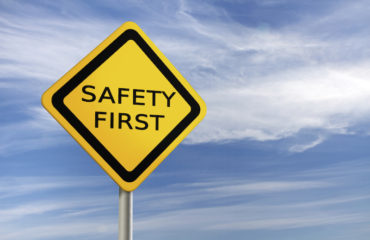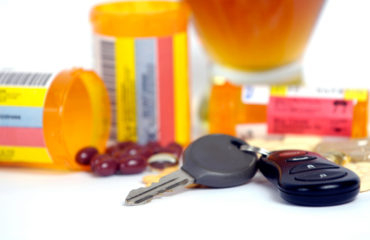Research demonstrates drugged driving is becoming pervasive and widespread. A 2007 national road survey to determine the extent of drugs present found that of the drivers tested, nearly 16% tested positive for drugs – 11% illegal drugs, 4% prescription drugs and 1% both illegal and prescription. In another national study, of the drivers killed in 2009 in motor vehicle crashes with known drug-test results, one-third tested positive for drugs.
According to the Centers for Disease Control (CDC) and the Office of National Drug Control Policy (ONDCP), drugged driving is at an epidemic status. Steps must be taken now to improve safety on our roads. For many years, the focus has been on alcohol-impaired driving, but it is no longer just about alcohol or just about other drugs. It is not one or the other; it is both. We must look at the broader issue of “substance-impaired driving,” and this includes medicine prescribed by a doctor.
Prescription Medication Can Cause Drugged Driving
Taking a legal drug as directed, does not preclude the possibility of drug impaired driving. Some prescribed drugs even have a warning label that says: “Do not drive or operate heavy machinery while taking this medication” or “Caution should be used when driving or operating heavy machinery.” Driving a car is “operating heavy machinery.”
Taking a drug as prescribed is not a defense to drug impaired driving if the person is impaired, and some drugs do impair us. That is what they are designed to do – to effect our mind and/or our body.
In addition, it is critical that we understand the consequences of taking any medicine, and then follow the instructions or warnings provided. For instance, drinking alcohol while using medication can result in serious unintended consequences. Many prescribed drugs indicate that alcohol should not be consumed when taking it. That warning should be respected.
Drugged driving is a significant concern when you are starting a newly prescribed medication or your dosage was recently increased, or you are taking several different drugs together. Your body is just learning how to respond to the medication or the increased dosage and it is easy to become impaired during this time.
Drugged Driving And Illegally Obtained Drugs
It is sad to say that those intent on abusing prescription medications can obtain them through a variety of methods, such as the black-market or “pill mill” doctor, or by going to a doctor and convincing that doctor that the need is genuine. People who abuse drugs will lie about their symptoms, and at times it is hard for a doctor to determine the truth. This may require physicians to start drug testing all of their patients. While such a step may offend some patients, it may be an important step to ensure any medication prescribed is for a legitimate purpose. These routine drug tests could also inform a doctor about other medications a patient is using.
Pill mill doctors are doctors who are not operating ethically, and typically provide pain medication under the guise of treating the person. The pharmaceutical chain CVS attempted to shut down this type of doctor by examining its prescription data. After finding that a few doctors had written an unusually large number of prescriptions, CVS declared that these doctors would no longer have dispensing privileges. And what is “an unusually large number of prescriptions?” One doctor whose privileges were suspended had prescribed more than 44,000 doses of high-risk drugs, compared to other doctors in his region who had prescribed 662 doses.
Recommendations
As we age, we are likely to take medication for a variety of ailments. In a recent AAA Foundation for Traffic Safety survey of people 55 years and older, 18% of the people surveyed indicated that they had received a warning from a doctor or nurse about the medication they were using and how it could impact their driving abilities; only 28% even recognized it as a possibility.
Consider these recommendations when taking prescribed medication:
- When getting any medicine, take the time to talk with your doctor or pharmacist. Find out how it will impact you and your driving.
- If you are just starting out with a particular prescription or increasing the dosage of your current medication, use extra caution.
- Never drink alcohol while taking medicine, and
- If you feel that you are impaired, don’t drive. BUT always remember that you should think about all of this before taking the medication; after all, your judgment may be impaired.
Also, a useful tool is “Roadwise RX.” Developed by AAA, Roadwise RX is a free online tool that can help educate you on how medications may affect your driving. It can examine a list of medications you take and then you receive a report on how that drug or drugs may impair you. It even includes possible interactions between medications.
Remember, impaired driving can be caused by more than just alcohol. Keeping that in mind as you take any medicine can help keep you and your loved ones safe.
Have you spoken with your doctor? Let me know in the comments below.








